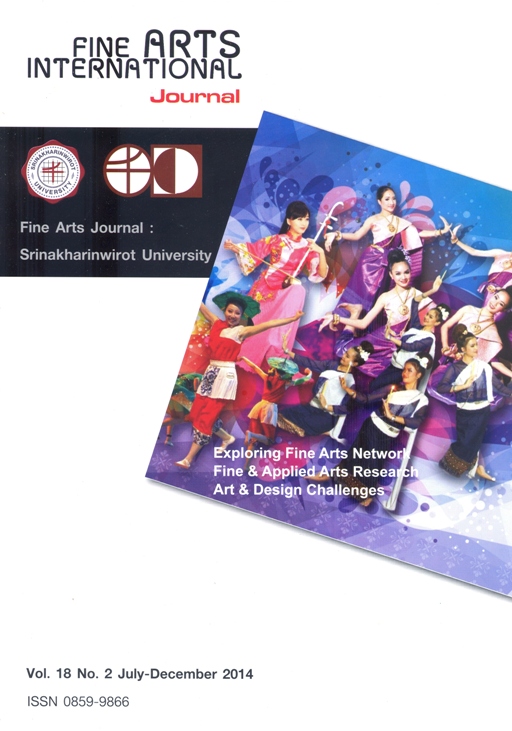Developing Musicianship through Improvisation: An Eclectic Teaching Module for Pre-school Children
Keywords:
Musicianship, Improvisation, Eclectic Teaching ModuleAbstract
In order to develop musicianship skill of pre-school students, the researcher as a teacher developed an eclectic teaching module that adheres to the philosophies found in Kodály, Dalcroze, and the Orff approaches. Improvisation was used as a tool for developing musicianship. From this action research, students learned through active music making for twelve lessons. Each lesson contained the development of six skills, including keeping a steady beat, improvisation elements identification, rhythmic imitation, rhythmic improvisation, melodic imitation, and melodic improvisation. Every lesson, students had got a new pair of contrasting elements and used them with all those six skills. The contrasting materials included long/short sounds, high/low sounds (sol/mi), same/different patterns, sound and silent signs, backward patterns, loud/soft sounds, louder/softer sounds, fast/slow speeds, faster/slower speeds, and staccato/legato signs. A rating scale with five-point continuous criteria was used for pretests, post-tests and improvisation assessments. Video recording was used to document all students’ activities and make assessments of observed behaviours. Three teachers, who controlled all assessments, were observed for research reliability. The findings demonstrated that all ten students had improvement on all six objectives. The mean post-test scores were higher than the mean pre-test scores. The students demonstrated the understanding and enhancing of musical foundation, which included two aspects of improvisation skill, rhythmic improvisation and melodic improvisation. The most improvement skill was a keeping steady beat, followed by rhythmic improvisation, melodic improvisation, melodic imitation, rhythmic imitation, and improvisation materials identification.






